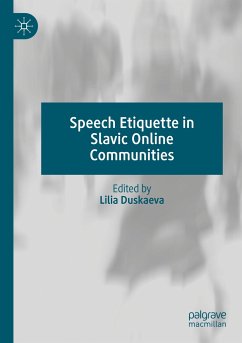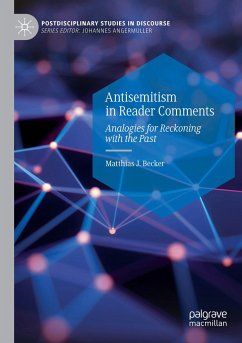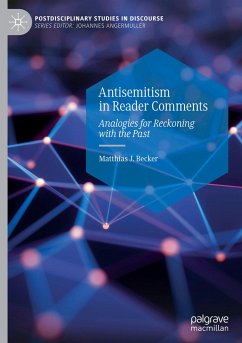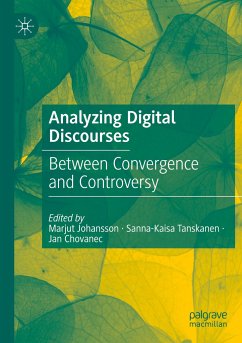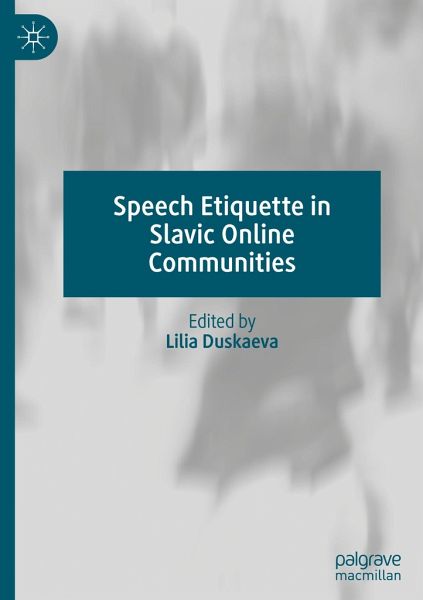
Speech Etiquette in Slavic Online Communities

PAYBACK Punkte
53 °P sammeln!
This edited book focuses on speech etiquette, examining the rules that govern communication in various online communities: professional, female, and ethnospecific. The contributors analyze online communication in the Slavic languages Russian, Slovak, Polish, and Belarusian, showing how the concept of speech etiquette differs from the concept of politeness, although both reflect the relationship between people in interaction. Online communities are united on the basis of common informative or phatic illocutions among their participants, and their speech etiquette is manifested in stable forms o...
This edited book focuses on speech etiquette, examining the rules that govern communication in various online communities: professional, female, and ethnospecific. The contributors analyze online communication in the Slavic languages Russian, Slovak, Polish, and Belarusian, showing how the concept of speech etiquette differs from the concept of politeness, although both reflect the relationship between people in interaction. Online communities are united on the basis of common informative or phatic illocutions among their participants, and their speech etiquette is manifested in stable forms of conducting discussions - stimulating and responding. Each group has its own ideas of unacceptable speech behavior and approaches to sanitation, and the rules of speech etiquette in each group determine the degree of rapport and distancing between the participants in discourse. The chapters in this book explore how rapport and distance are established through acts such as showing attention tothe addressee and increasing his or her communicative status; reducing or increasing the illocutionary power of evaluations and motivations; and evaluating one's own or someone else's speech. The volume will be of interest to researchers studying online communication in such diverse fields as linguistics, sociology, anthropology, programming, and media studies.



